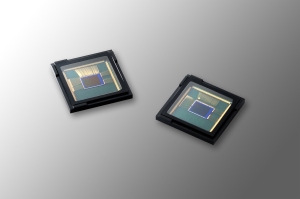Samsung
Electronics Co., Ltd., a world leader in advanced semiconductor technology, today
announced the industry’s first 1.0μm-pixel-based 16 megapixel (Mp) CMOS image
sensor for use in advanced mobile devices.
Samsung’s new
image sensor, the S5K3P3, leverages the company’s proprietary ISOCELL
technology to enable the high performance 1.0μm pixels. This market-leading
small pixel minimizes the overall size and height of an image sensor module,
making it an ideal solution for today’s increasingly thinner mobile devices.

“As a trendsetter
in the mobile image sensor business, we are pleased to be the first to deliver
the most advanced 1.0μm-pixel imager, which meets both high-resolution and slim
design requirements for smartphone cameras,” said Kyushik Hong, Vice President
and Head of S.LSI Marketing at Samsung Electronics. “Starting with 16Mp sensor,
Samsung plans to further expand 1 .0μm-pixel product category and lead the
image sensor market for high performing slim mobile devices.”
Built with 1.0μm
pixels, Samsung’s new 16Mp image sensor reduces the module’s overall height by
20 percent, compared to current 1.12μm-pixel based 16Mp sensor modules.
Enabling a module z-height that is less than 5mm, the S5K3P3 offers designers
the ability to develop a mobile device with minimal camera protrusion without
compromising on resolution.
In addition, the
S5K3P3 takes advantage of Samsung’s ISOCELL technology to deliver image quality
that is on par with 1.12μm-pixel based image sensors. Using ISOCELL technology
dramatically reduces color crosstalk of neighboring pixels by adding physical
barriers between each pixel. This substantially increases light
sensitivity and effectively controls the collection of photons, resulting in
higher color fidelity even in poor lighting conditions.
Combining ISOCELL
technology with the industry’s smallest 1.0μm pixels, the new S5K3P3 image
sensor will provide manufacturers with a differentiated design option.
Samsung’s new
S5K3P3 image sensor is available today for mobile device manufacturers to
design into their next-generation products.

No comments:
Post a Comment